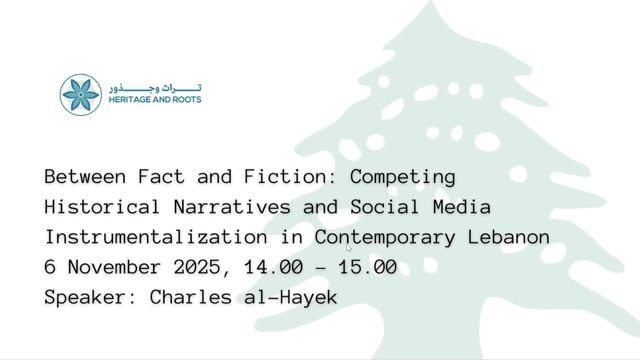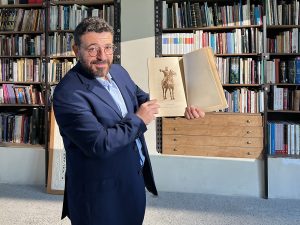Recording of the lecture by Charles al-Hayek during his fellowship at the C²DH.
On 6 November 2025, Lebanese public historian and educator Charles al-Hayek delivered an engaging presentation, as part of his recent fellowship at the Center for Contemporary and Digital History (C²DH).
In his presentation, al-Hayek discussed how Lebanon confronts competing national and traditional narratives, each attempting to establish authoritative temporal origins for the nation. By presenting concrete examples from different online platforms and history enthusiast groups, the presentation exposed how the mythologization of the past serves specific political functions, particularly for sectarian parties and geographic constituencies, fostering perspectives that emphasize division over diversity.
al-Hayek’s analysis on how digital spaces have become sites for the propagation of these competing historical narratives questioned the implications of such narratives on collective memory and national identity. His presentation included examples from his own work as a public historian, which he sees as ways of exploring remedial approaches to this challenge and promoting factually-grounded and nuanced historical narratives that enhance public historical understanding.
The presentation was followed by a very lively conversation with attendees online and on site, which discussed important aspects such as the concept of “neutrality” and whether any public history practitioner can claim it, or whether they need to position themselves in such discourses. In the end, all views were reflected in the discussion about the role of historical knowledge in divided societies and the potential of public history to mediate between academic historiography and popular historical consciousness.

Charles al-Hayek’s visit is part of a recently established partnership between the Public History as a New Citizen Science of the Past (PHACS) project and Heritage and Roots (the platform created and managed by al-Hayek), which aims to publish and disseminate practices of public history from Lebanon and the region (Syria, Jordan, Palestine, Türkiye).
Author(s)
Myriam Dalal
